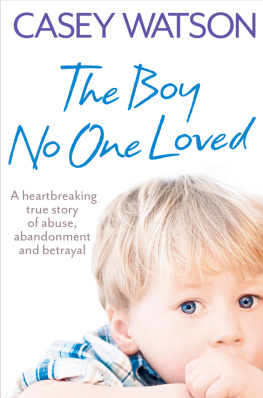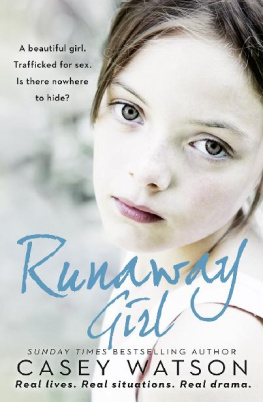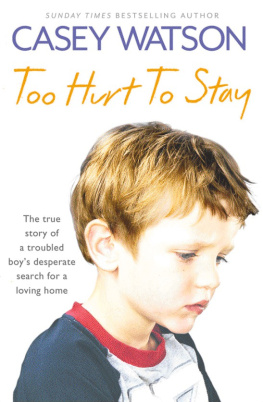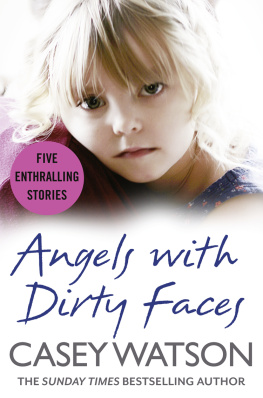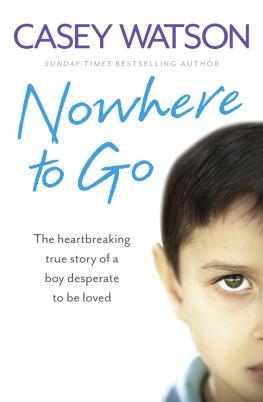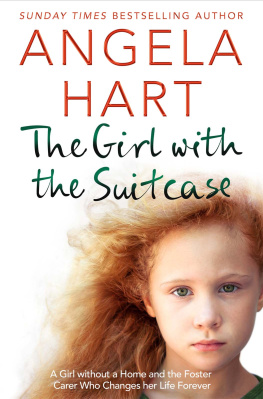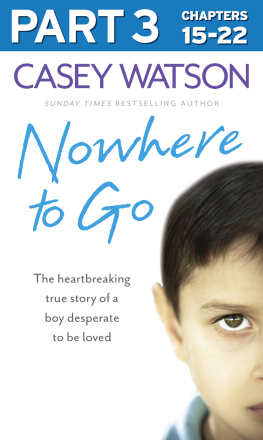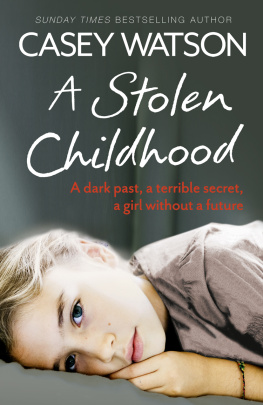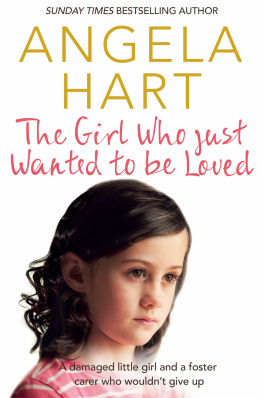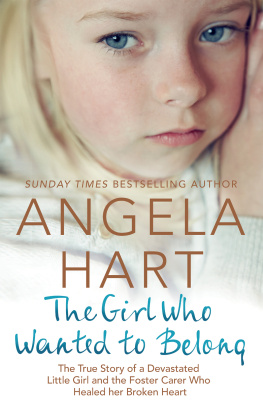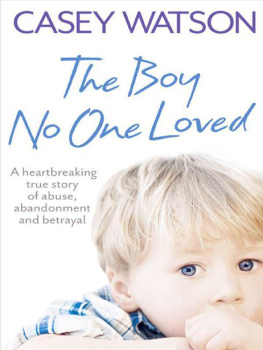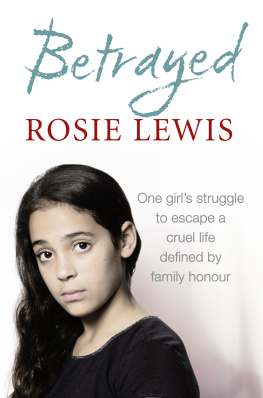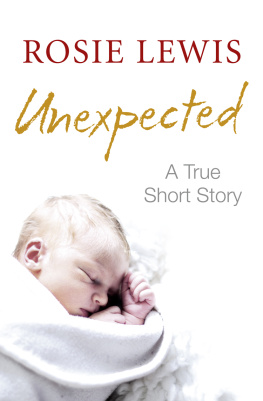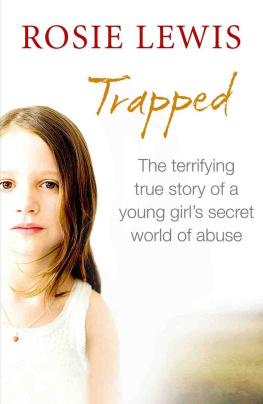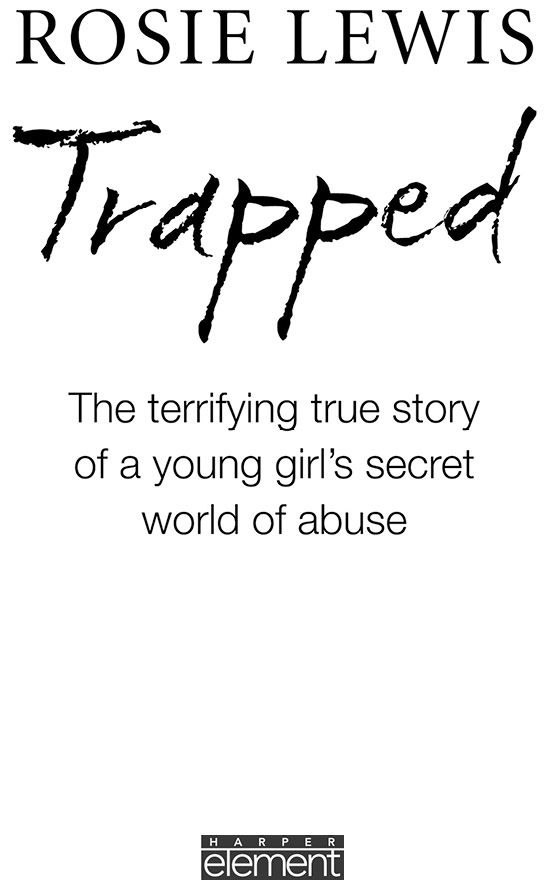With small, stumbling fingers Phoebe set her torch on the bedside cabinet, then rolled around her bed until her whole body became swaddled by her sheet, all the way up to her ears. Her cheeks burned with heat but determinedly, she began the awkward process again, this time with her duvet. By the time she had finished breathing was difficult but she felt safe, cocooned from the world outside.
She held herself still for a long time, partly to listen out for danger but mainly because her mummified state wouldnt allow for much movement. The whishing came soon afterwards. At first it was gentle, a bit like the sound she heard when Mummy held a seashell to her ear but then the rustling began, filling her head until she worried that there would be no room left for her brain. The air around her came alive with the patter, drowning everything else out: the loud tick of the big clock in the hall, the muted conversations drifting up through the floorboards, even the whistle of the wind.
Everything in her room remained in the same place; the three-storey dolls house with lifting roof, her white dressing table with the heart-shaped mirror and all the tiny glass perfume bottles lined across the top, and yet in an instant all became unfamiliar. The weak shaft of light from her torch no longer chased shadows into the corners of the room.
She began making funny groans like some of the children at school. The louder she hummed, the more muffled the horrible noise became. And she found that if she spun her eyes around as fast as she could, the pictures in her head got fuzzy too. The hand now pressing on her mouth no longer pinched her cheeks as painfully and the strange words hanging in the air transformed into the fairies that cling to dandelion stems, so light that if she blew hard enough they might float away on the breeze.
As the man dragged her out of her cocoon in one swift movement, chuckling at her attempts to protect herself, she sank deeper into her brain and pictured her father. In her mind he was dressed in his smart suit for work, tall and strong. She longed to call out to him, imagining that he would rush in to pick her up and keep her safe, but sensing that to yell would be dangerous, she bit down hard on her lower lip instead. She told the man that he could chose something from her room, anything he wanted, if only he would go back downstairs and rejoin the party. Her pleading made him laugh again.
In the morning it hurt to walk to the bathroom. She moved slowly because her pyjamas were wet and clinging to her legs. As she peeled off her night-clothes she smelt urine and her face grew hot with shame. Mummy would be sure to remove a star from her chart.
The thought brought hot tears to her eyes.
It was a dreary, overcast day in March 2009 when I first met Phoebe. As I sat in the local authority training centre, I shook my lifeless mobile phone several times, hoping that news of a fostering referral would drift across the airwaves. Between placements I was filled with a restless yearning; an itch I couldnt scratch. How blissfully ignorant I was back then, unaware of the far-reaching impact she would have on our family.
It would be wise to keep a collection of pebbles in your kitchen drawer, our lively tutor was drilling us on the latest techniques for safeguarding drug-addicted teenagers. That way youll remember to drop one in if they trust you enough to ask for a bag.
Ellie was a recent recruit to the local authority team of trainers and a registered nurse by profession. The tall blonde was proving popular with foster carers, her courses particularly well attended by other halves I had never seen as many men on a training day before. It seemed word of her sultry tones, shiny lip gloss and stiletto heels had worked its way quickly around the fostering network of the north of England.
A flurry of blank looks travelled around the semi-circle of foster carers in front of her.
We lost one of our teenagers earlier this year, Ellie went on to explain. She passed out with a bag of solvent still fixed to her ears. With a heavy object inside, the plastic would have been far more likely to fall from her face as she collapsed. A little forethought from her carer might just have saved her life.
I take it were expected to provide em with a WH Smith voucher as well, the black foster carer sitting opposite me offered in a Brummie accent, daring a touch of sarcasm, to save em forkin out for town glue.
Sniggers swept around the room.
Ellie held out one manicured hand, tucking a stray tendril of shiny blonde hair behind her ear with the other. I take it that some of you feel uncomfortable with what Ive just said?
Glancing around, I noticed several of the women nodding their heads. Most of the men sat with their legs sprawled wide, one or two with dreamy expressions on their faces.
Surely its our job to discourage risky behaviour? I ventured. Social workers were keen to encourage foster carers to show Looked After Children the same quality of care as their own families. I was certain that I wouldnt provide bags with rocks inside for my own children, Emily and Jamie, freeing them to get high in the knowledge that Health & Safety procedures had been adhered to by their attentive mother.
Ellie smiled, shaking her head. I know its not easy to stomach but its our responsibility to safeguard these children. Theyre damaged most of them need something just to get through the day. Showing disapproval will simply drive their behaviour underground. Having to hide their addiction, she tilted her dainty hand in mid-air, rocking it slightly from side to side, might just be enough to tip them over the edge.
After a buffet lunch courtesy of the local authority, Ellie moved on to drug classifications and how to recognise paraphernalia among seemingly innocent everyday objects such as empty fizzy drink cans. It was fascinating but her comment about damaged children needing a prop to survive kept playing over in my mind. I felt a longing to soothe the turmoil a child must feel to treat their body with such disregard. The uncomfortable feeling reminded me of why I had decided to register as a foster carer. Like many of my fellow carers, I was drawn to it.
For the rest of the afternoon the class was held rapt, not only by Ellies dynamic teaching style but also the shocking nature of the facts she was imparting. Between the 20 or so carers present we had chalked up a collective experience of over 200 years of fostering, yet most of us were unaware that the latest trend for self-harmers was to insert diazepam capsules into the cuts in their skin for rapid absorption, or that wheelie bins often went missing because they offered an ideal confined space for solvent abuse.
Most of the training days I had attended in the past fortnight held my attention as efficiently as a pile of wet nappies and so it was refreshing to be presented with such thought-provoking information. It was only towards the end of the day that my concentration began to waver and I idly poked my mobile phone again, willing it to spring into action. My last placement had ended three weeks earlier a sibling group of two who stayed with me for almost three years. The wounds of separation after they moved on to adoption were still raw, an unfortunate occupational hazard. I was eager to jump back into the saddle of caring again, knowing it was the best way to recover from my loss and so, after taking a break of two weeks, I agreed for my name to reappear on the vacancy register. Recovery time between placements is recommended to restore energy levels; fostering can be a physical and emotional drain. Carers often make use of the time by catching up on training; we are obliged to attend at least six training sessions each year, a tricky task with young ones in placement.

